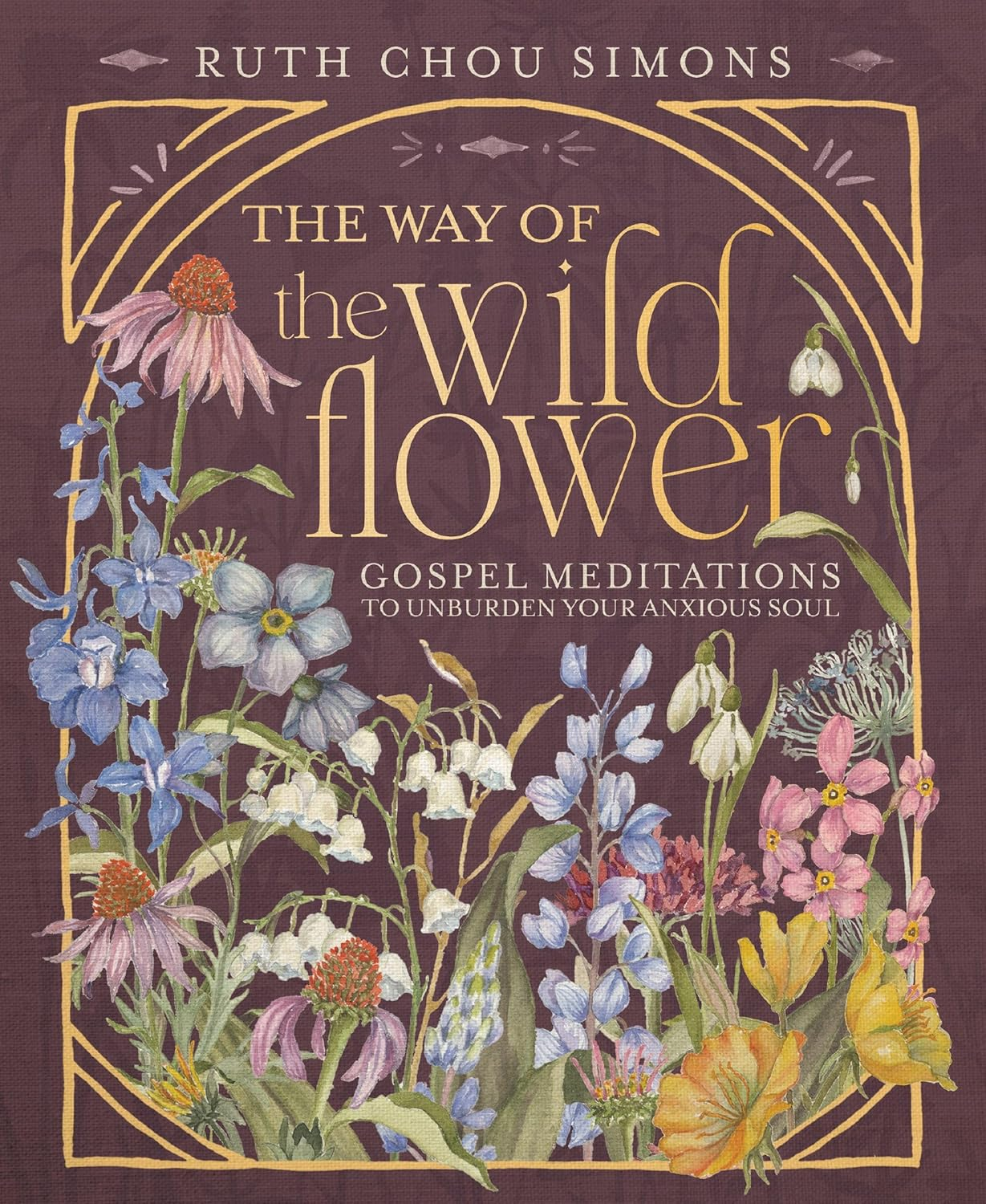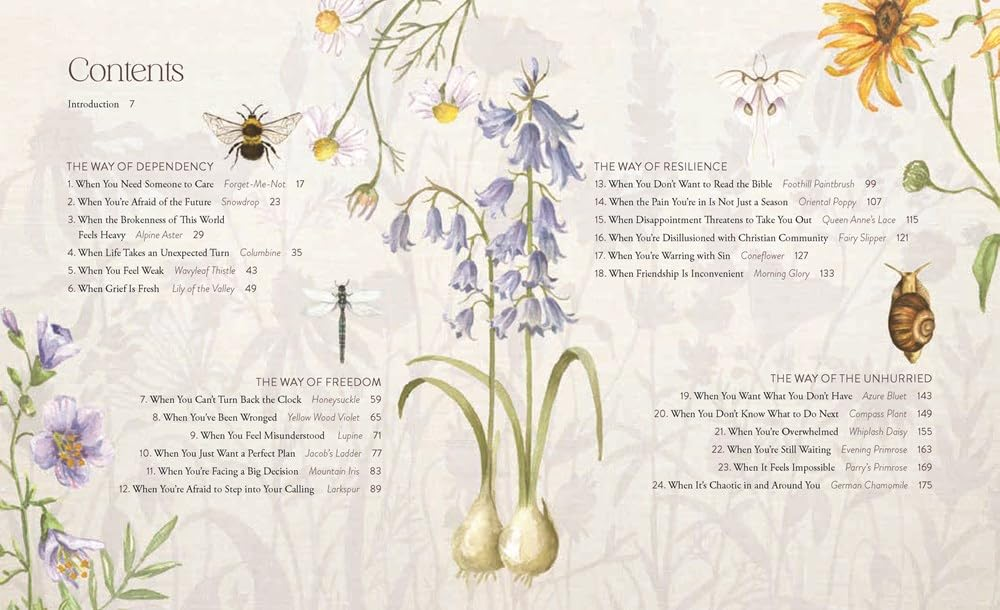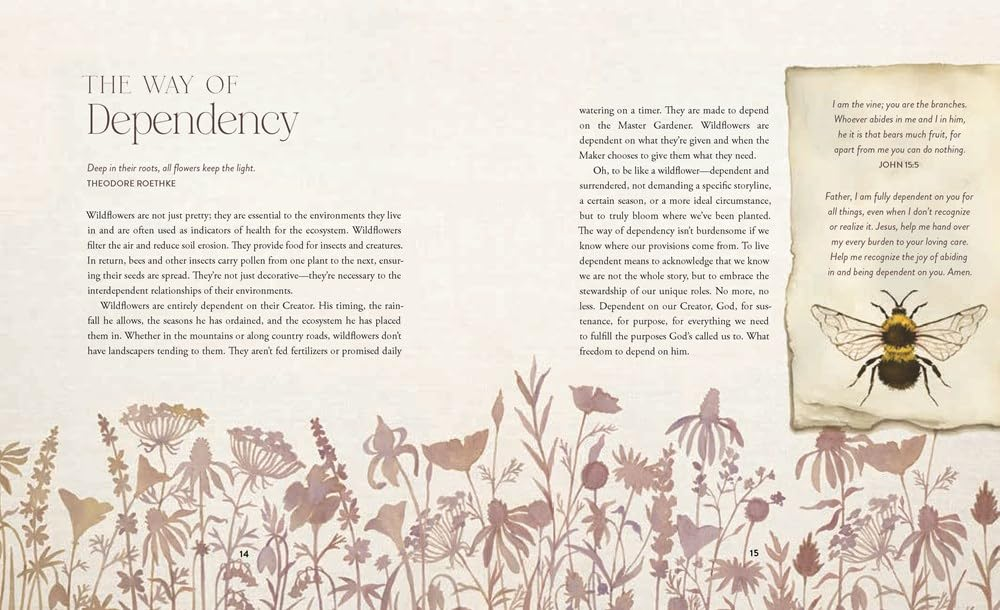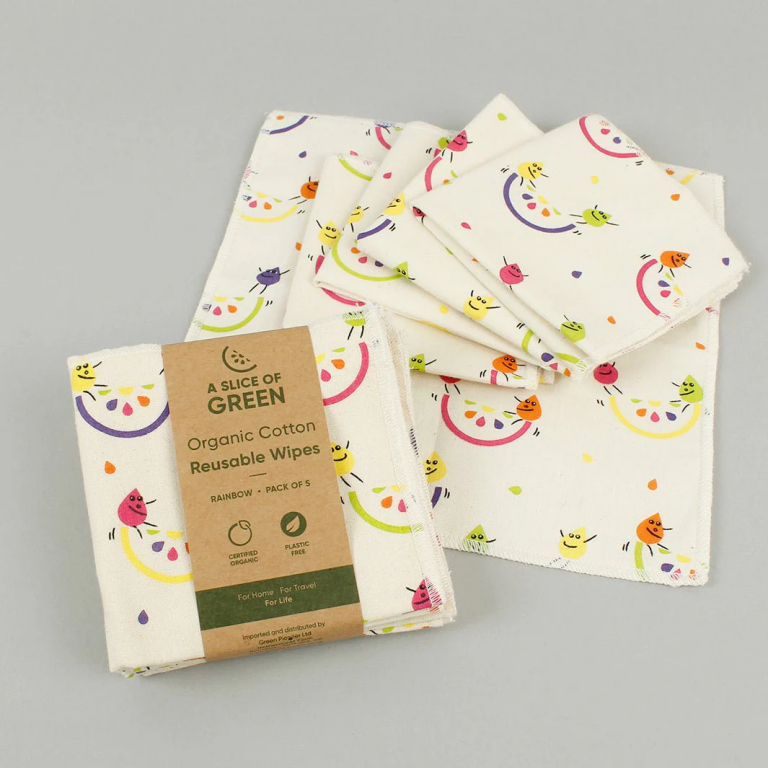
Wildflowers rise where you least expect them, bright against a kerbside or pushing through cracked stone. They do not ask for permission. They simply grow, small beacons of colour in places many ignore. In their quiet beauty lies a simple lesson, one that points us to a better way to live and to trust.
The Way of the Wildflower is a path of Gospel reflection shaped by what blooms in the field. It draws on Scripture and nature to remind us that God tends to small things and worried hearts. These meditations invite busy people to pause, to breathe, and to see how faith fits into washing up, school runs, deadlines, and late-night worries.
At its heart, this way echoes five themes that refresh a burdened soul: dependency on God, true freedom in Christ, strength to endure when life is harsh, a gentle unhurried pace, and deep belovedness as children of the Father.
Jesus once pointed to flowers that do not knit their own clothes yet stand in rich colour. He asked, if God clothes grass and flowers for a day, will He not care for you? That question still softens anxious hearts.
Did you know that many wildflowers are unsafe near animal friends? Read our post on pet-friendly gardens.
Lessons on Faith and Growth

Wildflowers teach trust in the One who plants. They do not choose their soil, yet they lean into the light. In that simple act, they echo a Gospel theme. We grow not by striving alone, but by receiving daily grace.
Think of the mustard seed, tiny in the palm, yet holding a tree inside it. A daisy on a scruffy verge shows the same hope. Life in Christ begins small but spreads in steady courage. Poppies scattered on a hillside remind us that beauty returns after a hard season. The field can look barren in winter, then burst to life at the first warm rain.
When I felt weighed down by work that never seemed to end, I noticed a single poppy by the pavement. It stood between gravel and litter, but its scarlet petals caught the sun. It did not fix the mess, yet it told the truth. God brings colour to low places. He cares for what seems ordinary. He meets us where we are.
Faith grows like that. We set our roots in the Word, we lift our faces in prayer, and God brings the fruit in His time. These wild lessons match the five paths above. Dependency looks like roots reaching for water. Freedom looks like petals open to the light. Strength to endure looks like stems that bend but do not break. An unhurried pace looks like seasons that refuse to be rushed. Belovedness looks like the Father’s care, given without measure.
Thriving in Hard Times Like the Lily of the Valley
Jesus once pointed to flowers in the field and said they do not fuss or toil to clothe themselves, yet their beauty outshines kings. If God dresses small lilies that last only a short time, how much more will He provide for His children. The lesson is plain. Worry cannot add to our lives, but trust will steady our steps.
Meditation prompt: The next time stress rises, step outside if you can. Find a small plant or patch of sky. Breathe in for four counts, hold for four, breathe out for six. Whisper, “Father, you care for the lilies. You care for me.” Let your shoulders drop. Ask for today’s bread, not tomorrow’s supply.
The Humble Beauty of the Common Dandelion
The dandelion is easy to overlook. It grows in car parks and cracks, offered to parents by small hands. Yet it keeps coming back, bright as a coin in the grass. Its quiet spread hints at the Gospel call to humble service. Think of the widow who gave two small coins. People saw a tiny gift, but God saw a full heart.
We can live this way in community. Say a prayer for a neighbour and send a short message. Take a simple meal to a tired family. Pick up litter on your street and greet the person you usually pass by. Small acts move like dandelion seeds on the wind. They settle in places you may never see, yet they carry life.
Gospel Stories with Wildflower Wisdom

Wildflowers can open the Bible in fresh ways. Their cycles mirror stories of loss and return, barrenness and bloom. After a long drought, a burst of colour can cover a hillside in days. The prodigal son’s return is like that moment. When he turned home, the Father ran, embraced him, and set a feast. What was dry became alive again. Grace grows fast once welcomed.
Consider also barren ground that cracks under the sun. Some seasons feel like that inside the soul. Yet revival often starts with the first small shower, a whispered prayer, a single verse that lands at the right time. Wildflowers show that God can bring beauty in places we once wrote off. Keep a small journal of such mercies. Note where God meets you in the everyday. Over weeks, patterns will appear.
The five paths meet here too. In returning to the Father we learn dependency. In forgiveness we know freedom. In hard seasons we find strength to endure. In prayer we slow to an unhurried pace. In His welcome we remember we are beloved.
The Sower’s Seeds and Wildflower Scattering
Wildflower seeds travel with the breeze, on shoes, in fur, or by hand. They land on soft loam, thin dust, thorny edges, and stony ledges. Jesus told a story like this. Seeds fell on different soils. Some were snatched, some sprang up then withered, some were choked, and some bore a harvest. The heart that hears and holds the Word is like rich soil.
Practical tip: Pair your daily reading with one short phrase to carry. Write it on a card or keep it on your phone. Touch it at meals, in queues, or on the bus. Let that seed settle deeper each time you see it.
Jesus as the Rose of Sharon in Nature’s Embrace
Scripture uses flower language to speak of Christ. He is pictured as a blossom in the land, the one who brings loveliness and comfort to weary people. This image is not fragile sentiment. It shows a Saviour who meets us in tender ways, close and kind, yet strong to save.
Try a simple prayer: “Lord Jesus, like a wild rose in a rough place, you bring beauty to my day and peace to my heart. Draw me close. Quiet my fears. Help me notice your care around me, and share it with others. Amen.”
Wildflower Meditations for Daily Life
It is possible to build small, steady practices that fit busy lives. You do not need a meadow to meet God. A balcony pot, a city park, or even a vase on a desk can become a reminder of His care.
Start with short walks and short prayers. Five minutes outside at lunch can reset your pace. Keep a simple wildflower journal. Sketch a leaf, tape a fallen petal, or note a colour you saw on your commute. Tie each entry to a verse or a thought of gratitude. If you live in a flat with little access to green space, bring nature indoors. Choose hardy plants, use nature photos as phone backgrounds, or play gentle outdoor sounds while you pray.
These small habits calm the mind and teach unhurried trust. Over time, you will notice a change. Worry loosens its grip. Scripture feels near. You sense God’s kindness in ordinary moments.
Simple Practices for Busy Days
- Breathing with a picture: Sit still for one minute. Picture a flower opening at sunrise. Breathe in as the petals open, breathe out as they rest. Repeat with a short prayer like, “Lord, you are near.”
- Weekly nature verse: Pick one verse each week that links to creation. Write it on a sticky note and place it where you work. Read it morning and afternoon.
- Share and encourage: Tell a friend one small way you saw God’s care today. Ask what they noticed. Swap a verse by text midweek.






